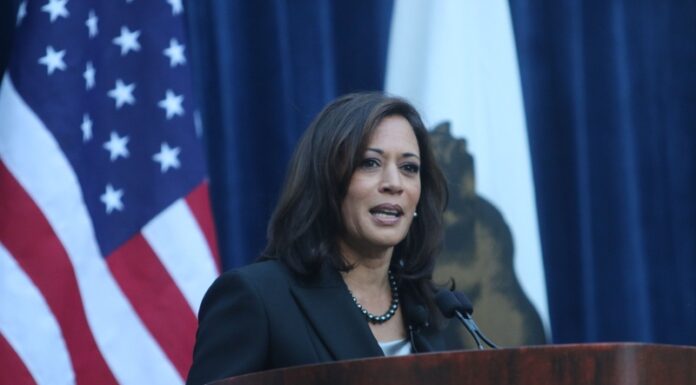Vice President Kamala Harris found herself at the center of a social media storm after an interview on MSNBC, where she repeatedly used the word “holistic.” The interview, which aired on Wednesday night, September 25, sparked a flurry of criticism from both political pundits and everyday viewers, leading many to mock her perceived overuse of the term during her discussion about housing policy.
In the interview with host Stephanie Ruhle, Harris attempted to explain her plans to tackle housing and transit issues by focusing on the bigger picture. However, her phrasing quickly became the focus of attention. “Some of the work is going to be through what we do in terms of giving benefits and assistance to state and local governments around transit dollars and looking holistically at the connection between that and housing,” Harris explained. She continued, “And looking holistically at the incentives we in the federal government can create for local and state governments to actually engage in planning in a holistic manner that includes prioritizing affordable housing for working people.”
Her choice of language swiftly drew the attention of critics, who were quick to react. Conservative commentator Clay Travis pointed out on social media that Harris had picked up the word “holistic” and used it repeatedly within a short span.
The Trump campaign quickly took the opportunity to criticize Harris, with the Trump War Room account suggesting that she had recently learned the word “holistically.” This lighthearted remark was one of several that spread across various platforms, with some commentators comparing Harris’s frequent use of the word to a “word salad.”
Despite the public roasting, Harris defended her approach, stating that a “holistic” view was crucial in addressing deeply interconnected issues such as housing, transportation, and the economy. However, political analysts quickly pointed out that the Vice President’s interview strategy relied on broad, somewhat evasive answers that failed to provide concrete solutions.
The New York Times, in its analysis of the interview, noted that Harris’ responses often lacked specificity, particularly when it came to addressing voter concerns about the economy: “When asked why voters still trust Donald Trump to handle the economy, Harris avoided providing a direct answer and instead attacked Trump’s record on jobs and manufacturing.”
In contrast, Harris’ supporters argue that the criticism surrounding her interview is overblown. They point out that politicians across the board often rely on generalities during interviews. They assert that Harris’ repeated use of “holistic” reflects a genuine desire to address systemic issues comprehensively.
Some viewers were frustrated by Harris’ perceived unwillingness to engage with tougher questions. Stephanie Ruhle, the interview host, has faced scrutiny herself for what many consider a “softball” approach, allowing Harris to sidestep direct queries about her policies.
For instance, when asked about the future of the U.S. Senate and whether her administration could implement its proposed policies without a Democratic majority, Harris avoided a detailed response. Instead, she reaffirmed her position on corporate taxation, emphasizing that the largest corporations and billionaires need to contribute their fair share.
The interview marked Harris’ first major solo appearance since stepping in as the Democratic presidential nominee following President Biden’s withdrawal. It also provided her critics with fresh material, underscoring what some consider her difficulty in connecting with voters through clear, concise messaging. However, it is worth noting that Harris has conducted only a handful of high-profile interviews since Biden’s exit, and most have been with local or niche media outlets.
As the election draws nearer, the Vice President’s media strategy continues to be a point of discussion. While some argue that her choice of “friendly” interviewers allows her to control the narrative, others believe it prevents her from addressing the tough questions that could sway undecided voters.








